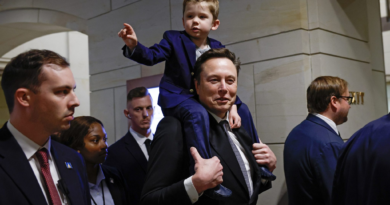Investors urge Nestlé to cut back on junk food—but consumers aren't ready
Nestlé is caught in an existential battle with investors who are tired of the KitKat maker’s association with unhealthy products.
A group of investors worth a whopping $1.6 trillion have sent a warning signal to Nestlé by filing a resolution that would see the food maker increase its target for healthy food sales over the next decade.
Nestlé has made billions off its KitKat chocolate bars, sugary breakfast cereals like Cheerios and Golden Nuggets, and other unhealthy “treats,” in addition to household staples like coffee and infant formula.
That long-lasting dependency is becoming a problem for investors, who worry that the group is exposing itself to regulatory risks and changing consumer appetites by continuing to focus on unhealthy products.
But the cost-of-living crisis is bringing warnings that a speedy shift to healthy food could blow a hole in the group’s accounts.
Investors lose their sweet tooth
Nestlé has built its $285 billion empire on the back of goods heavy on fat, sugar, and salt, with unhealthy products making up three-quarters of the group’s sales, ShareAction’s CEO Catherine Howarth told Bloomberg.
Activist investors have been urging Nestlé to move away from unhealthy products for a while, citing a plethora of risks that suggest the market for junk food is only likely to shrink in the future.
“Increasing public health policies, such as sugar taxes and marketing restrictions, threaten sales,” the activists said.
“Regulatory compliance creates legal risks. Reputational risks arise from increasing societal scrutiny. Meanwhile, consumer demand for healthier alternatives is increasing.”
Sugary risks abound
Headwinds are fast approaching for the group behind Quality Street sweets.
Governments are taking a tougher line on unhealthy products, trying to combat a rising obesity crisis, with the global costs of obesity expected to reach $3 trillion by 2030, according to the World Health Organization (WHO).
Investors are concerned this will spur new “sin taxes” and wider clampdowns on unhealthy food from regulators. The U.K., where costs to the country’s health service are inextricably linked to the health of its citizens, is a particular risk area.
Following the rapid rise of Novo Nordisk’s weight-loss drug Ozempic, there is fresh concern that formerly reliable consumers might turn away from Nestlé’s products as their appetites shrink.
Nestlé plans to increase its sales of “more nutritious products” by 50% by 2030, something investors with SharePoint said was inadequate.
They also point out that Nestlé includes coffee and infant formula in this forecast, which aren’t traditionally considered health products by regulators.
Nestlé has come to an impasse with SharePoint, arguing it is being unfairly attacked, saying it would have to “agree to disagree” with the investors’ assessments.
“Our goal is to achieve success across all segments of our portfolio, ensuring that we address responsibly the diverse needs and preferences of all our consumers,” a spokesperson told Fortune.
Nestlé’s healthy endeavors have mixed results
Nestlé has engaged in new products and acquisitions in search of diversifying its portfolio to healthy offerings.
Following the rise of Novo Nordisk’s Ozempic, the group said it had been working on “companion” products that might be of interest to shoppers who had cut their calories.
“When you eat less, you have certain needs of vitamins, minerals, and supplements,” Schneider said. “You want to be sure that the weight loss gets supported. You want to be sure that you limit the loss of lean muscle mass.”
The 2020 buyout of Mindful Chef, a health-focused U.K. meal-kit group, made up another part of Nestlé’s strategy to lean into the rising demand for healthy products.
However, while sales soared as the purchase coincided with lockdown mandates and a wave of customer demand, the group has been struggling with falling sales in recent years.
The company saw operating losses widen £5.1 million ($6.5 million) to £7.7 million ($10 million) in 2022, while revenues faced a double-digit decline.
Rising inflation in recent years has forced households to make tough decisions on supermarket aisles, and it seems like healthy, expensive options are being culled.
A survey carried out last year by BBC Good Food Nation found that 28% of Brits were eating less nutritious food because it was more expensive than processed products.
Nestlé is accordingly being squeezed at both ends by impatient investors who want the group to ditch the junk-food arm that helped make it big, and customers who can’t yet commit to its healthy offerings.




